Filter by

Selbstbestimmung, Privatheit und Datenschutz
In diesem Open-Access-Sammelband werden die aktuelle Herausforderungen für Privatheit und Datenschutz aufgezeigt, die durch die zunehmende Digitalisierung entstehen. Die Beitragsautoren analysieren, wie diese durch Governancemechanismen adressiert werden können. Als Alternative zu einem rein profitorientierten Digitalkapitalismus bzw. Digitalautoritarismus wird für einen eigenständigen euro…
- Edition
- 1
- ISBN/ISSN
- -
- Collation
- -
- Series Title
- DuD-Fachbeiträge
- Call Number
- XXIX, 508

Regulating the Metaverse Economy
This open access book examines regulating an environment that has no jurisdiction, is fully anonymous and infinitely vast? Welcome to the Metaverse, an online virtual reality that is expected to add billions to the global economy. The Metaverse offers a new type of virtual economy with practically endless business opportunities. The question is how to prevent these opportunities from being abus…
- Edition
- -
- ISBN/ISSN
- 978-3-031-46417-1
- Collation
- VIII, 112
- Series Title
- -
- Call Number
- -
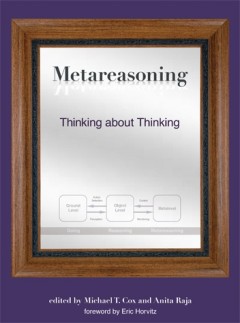
Metareasoning: Thinking about Thinking
This text offers a simple model of reasoning about reason as a framework for its discussions. Following this framework, the contributors consider meta-level control of computational activities, introspective monitoring, distributed meta-reasoning, and, putting all these aspects of meta- reasoning together.OCLC-licensed vendor bibliographic record.
- Edition
- -
- ISBN/ISSN
- 9780262295284
- Collation
- 1 online resource (vi, 340 pages) :illustrations
- Series Title
- -
- Call Number
- -
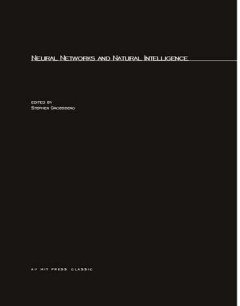
Neural networks and natural intelligence
"A Bradford book."Stephen Grossberg and his colleagues at Boston University's Center for Adaptive Systems are producing some of the most exciting research in the neural network approach to making computers "think." Packed with real-time computer simulations and rigorous demonstrations of these phenomena, this book includes results on vision, speech, cognitive information processing; adaptive pa…
- Edition
- -
- ISBN/ISSN
- 9780262315937
- Collation
- 1 online resource (xi, 637 pages) :illustrations
- Series Title
- -
- Call Number
- -

Structures of scientific collaboration / of Scientific Collaboration
How technology and bureaucracy shape collaborative scientific research projects: an empirical study of multiorganizational collaboration in the physical sciences. Collaboration among organizations is rapidly becoming common in scientific research as globalization and new communication technologies make it possible for researchers from different locations and institutions to work together on com…
- Edition
- -
- ISBN/ISSN
- -
- Collation
- 1 online resource (xi, 280 pages) : illustrations.
- Series Title
- -
- Call Number
- -
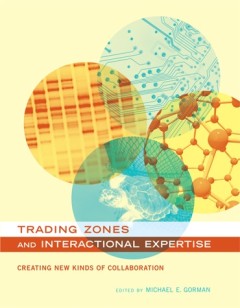
Trading Zones and Interactional Expertise: Creating New Kinds of Collaboration
Cross-disciplinary collaboration increasingly characterizes today's science and engineering research. The problems and opportunities facing society do not come neatly sorted by discipline. Difficulties arise when researchers from disciplines as different as engineering and the humanities work together and find that they speak largely different languages. This book explores a new framework for f…
- Edition
- -
- ISBN/ISSN
- 9780262289436
- Collation
- 1 online resource (viii, 302 pages) :illustrations.
- Series Title
- -
- Call Number
- -
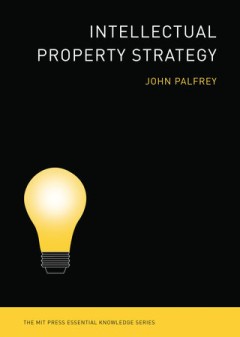
Intellectual Property Strategy
How a flexible and creative approach to intellectual property can help an organization accomplish goals ranging from building market share to expanding an industry. Most managers leave intellectual property issues to the legal department, unaware that an organization's intellectual property can help accomplish a range of management goals, from accessing new markets to improving existing prod…
- Edition
- Ed. 1
- ISBN/ISSN
- 9780262302890
- Collation
- -
- Series Title
- -
- Call Number
- 346.048 PAL i
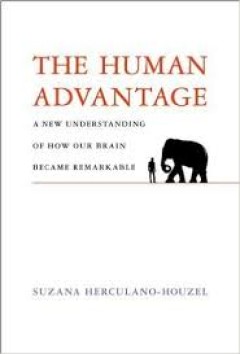
The Human Advantage: A New Understanding of How Our Brain Became Remarkable
"Humans are awesome. Our brains are gigantic, seven times larger than they should be for the size of our bodies. The human brain uses 25% of all the energy the body requires each day. And it became enormous in a very short amount of time in evolution, allowing us to leave our cousins, the great apes, behind. So the human brain is special, right? Wrong, according to Suzana Herculano-Houzel. Huma…
- Edition
- -
- ISBN/ISSN
- 9780262333214
- Collation
- 1 online resource :illustrations
- Series Title
- -
- Call Number
- -
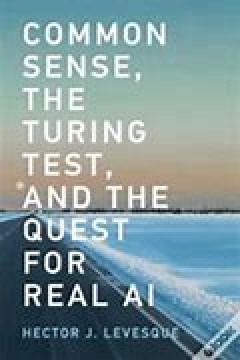
Common Sense, the Turing Test, and the Quest for Real AI
"What can artificial intelligence teach us about the mind? If AI's underlying concept is that thinking is a computational process, then how can computation illuminate thinking? It's a timely question. AI is all the rage, and the buzziest AI buzz surrounds adaptive machine learning: computer systems that learn intelligent behavior from massive amounts of data. This is what powers a driverless ca…
- Edition
- -
- ISBN/ISSN
- 9780262338363
- Collation
- 1 online resource (xv, 172 pages) :illustrations
- Series Title
- -
- Call Number
- -

Prior art :patents and the nature of invention in architecture
"Prior Art offers the first ever history of the use of patents in architecture, spanning the period 1830 - 1996"--OCLC-licensed vendor bibliographic record.
- Edition
- -
- ISBN/ISSN
- 9780262378345
- Collation
- 1 online resource
- Series Title
- -
- Call Number
- -
 Computer Science, Information & General Works
Computer Science, Information & General Works  Philosophy & Psychology
Philosophy & Psychology  Religion
Religion  Social Sciences
Social Sciences  Language
Language  Pure Science
Pure Science  Applied Sciences
Applied Sciences  Art & Recreation
Art & Recreation  Literature
Literature  History & Geography
History & Geography